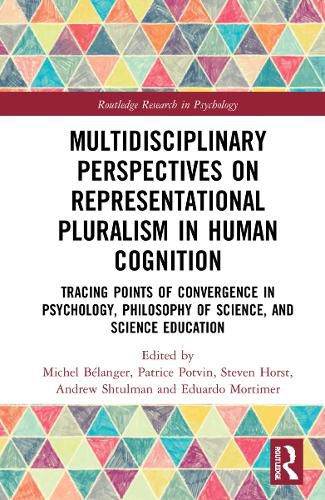Readings Newsletter
Become a Readings Member to make your shopping experience even easier.
Sign in or sign up for free!
You’re not far away from qualifying for FREE standard shipping within Australia
You’ve qualified for FREE standard shipping within Australia
The cart is loading…






Bringing together diverse theoretical and empirical contributions from the fields of social and cognitive psychology, philosophy and science education, this volume explores representational pluralism as a phenomenon characteristic of human cognition.
Building on these disciplines' shared interest in understanding human thought, perception and conceptual change, the volume illustrates how representational plurality can be conducive to research and practice in varied fields. Particular care is taken to emphasize points of convergence and the value of sharing discourses, models, justifications and theories of pluralism across disciplines. The editors give ample space for philosophers, cognitive scientists and educators to explicate the history and current status of representational pluralism in their own disciplines.
Using multiple forms of research from the relational perspective, this volume will be of interest to students, scholars and researchers with an interest in cognitive psychology, as well as educational psychology and philosophy of science.
$9.00 standard shipping within Australia
FREE standard shipping within Australia for orders over $100.00
Express & International shipping calculated at checkout
Bringing together diverse theoretical and empirical contributions from the fields of social and cognitive psychology, philosophy and science education, this volume explores representational pluralism as a phenomenon characteristic of human cognition.
Building on these disciplines' shared interest in understanding human thought, perception and conceptual change, the volume illustrates how representational plurality can be conducive to research and practice in varied fields. Particular care is taken to emphasize points of convergence and the value of sharing discourses, models, justifications and theories of pluralism across disciplines. The editors give ample space for philosophers, cognitive scientists and educators to explicate the history and current status of representational pluralism in their own disciplines.
Using multiple forms of research from the relational perspective, this volume will be of interest to students, scholars and researchers with an interest in cognitive psychology, as well as educational psychology and philosophy of science.